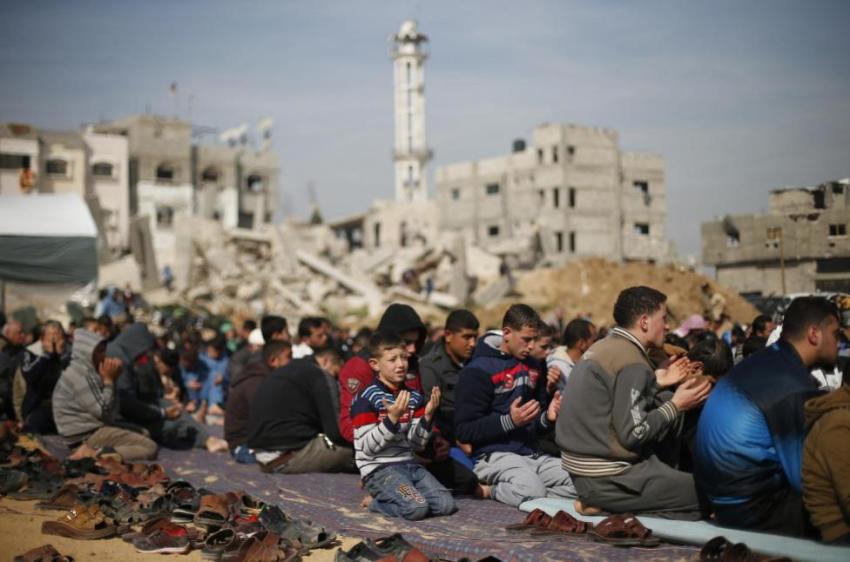Gaza Crisis Worse Than During Israel-Hamas War, Citizens Facing 70 Percent Unemployment and Living Among Ruins, Says Report

A recent report reveals that the "grave humanitarian crisis" in Gaza is even worse now than it was during the Israel-Hamas war last summer. With an international embargo hampering reconstruction efforts, close to 1.8 million people are living among the destroyed buildings in the region, and facing a 70 percent unemployment rate.
"One of the most difficult parts of our trip was seeing how much people have lost hope," said Sami El-Yousef, Catholic Near East Welfare Association's regional director for Palestine and Israel. "They really could not see any bright spot at the end of the tunnel; the tunnel does not even exist for them."
El-Yousef added that the atmosphere among the locals is one of anger.
"Anger at everyone: at the Palestinian Authority and Hamas for a lack of reconciliation, at Israel for creating the widespread destruction, at the international community for not doing more to support (Gaza), and at other Arab countries for not following through with their financial commitments," he noted.
Catholic News Service reported that El-Yousef visited the devastated area at the end of February, where he got to see first hand the challenges facing the people in the wake of the deadly conflict.
Over 2,100 Palestinians lost their lives in the war that began in July, before a long-term ceasefire was reached at the end of August. Israel carried out both airstrikes and ground operations against Hamas terrorists, who fired rockets at Israel and moved through underground "terror tunnels."
Both sides have exchanged blame for the high civilian death toll, with Hamas blaming Israeli aggression, and Israel saying that Hamas militants used people as human shields and hid at residential areas.
El-Yousef said that during the war, Gazans had at least a level of hope that things would get better with aid and reconstruction when the hostilities ended. These hopes have fallen apart, however, with promised financial aid from some Arab countries never arriving due to a conflict between the Palestinian Authority's ruling Fatah party and Hamas.
The only goods that can reach Gaza come from Israel, but many in the devastated local population can't afford the high prices.
CNEWA has been providing assistance through school programs for children aimed at helping them deal with the trauma suffered during the war, as well as the current difficult conditions. The project has reached between 10,000 and 20,000 people, El-Yousef said, and added that it will continue beyond this school years.
"There was a unanimous call while we were there that we need this to continue. They are worried when the children get out of the psychosocial intervention they will revert to their own war traumas," he said. "It is extremely helpful, especially for the children, to get out of the war worries."
The United Nations Office for the Coordination of Humanitarian Affairs has also noted this "paralysis" in Gaza. It reported that close to 100,000 Palestinians remain displaced during the winter and are living under dire conditions, which include power cuts for up to 18 hours a day.
In a joint statement from February, 30 Intentional Aid Agencies promised not to fail the people of Gaza.
The statement pointed out that the most vulnerable in society, namely the elderly, persons with disabilities, women and children continue to bear the brunt of the "unimaginable suffering."
"We must not fail in Gaza. We must realize the vision of making Gaza a livable place and a cornerstone of peace and security for all in the region," the aid groups stated.



























